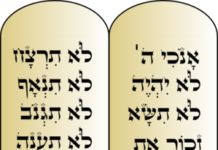Everyone hopes that one day, after 120, they will look back and feel they maximized life. But it’s one thing to hope for this, and it’s another to work towards it. The Torah’s description of Avraham Avinu offers an important insight into how to get to this desired goal. Avraham is described in Parshas Chayey Sarah as “bah ba’yamim,” simply meaning that he was coming of age. The Piascetzna Rebbe, however, interprets this more literally. Avraham was bah, coming, ba’yamim, with days. Meaning to say that he carried his days with him. All his days contributed to who he was in the end. The Rebbe has an interesting interpretation, but what does it mean?
Parts Therapy is essentially the idea that none of us is a uniform and monolithic being. As the poet, Ruth Lewis, writes, “It’s funny how people speak of ‘I’ as one person.” In fact, we are each made up of various parts that emerge from our different life experiences and developmental stages. The 6-year-old part of me interprets and reacts to my boss calling me in for a meeting differently than my 35-year-old part. Sometimes when we feel internal conflict about an issue or a decision, there are actually multiple parts of ourselves speaking-up with different feelings and voices.
Everyone carries parts they are embarrassed or overwhelmed by. These “unwanted” parts might include our awkward teenage selves, our overly-sensitive child parts, or our pre-frum parts. It’s natural to gravitate away from these parts and try to pretend they didn’t happen. Especially when we feel we’ve developed into a new and better person.
Avraham Avinu, however, did not take this approach. He was “bah ba’yamim” – he came with his days, all his days. He understood that in all life experiences there is value. Furthermore, he understood that all our parts deserve love and kindness. Instead of rejecting parts of his self, he nurtured and integrated them.
Rav Soloveitchik understands these different approaches, rejecting unwanted parts versus integrating them, as the difference between teshuva mei’ahavah, repentance out of love, and teshuva mei’yirah, repentance out of fear. Change and growth out of fear mean that I am afraid of some of my parts and I abandon them to become a new person. Repentance out of love, on the other hand, means that I love myself unconditionally and I learn and grow from all my experiences. We usually think of the yirah and ahavah involved in teshuva as fear and love of Hashem but possibly it also means our fears working hand-in-hand with our self-love. The Gemarah teaches us that the ideal is teshuva mei’ahavah – to nurture, integrate, and build upon each and every part.
Avraham Avinu classically represents the ultimate ish chessed, a person of boundless kindness. His kindness is typically spoken about in the context of interacting with other people, but “Avraham came with days” teaches us that his kindness also extended inwards. Perhaps it was his internal kindness that gave him the confidence and strength to be unceasingly kind to all those around him.







